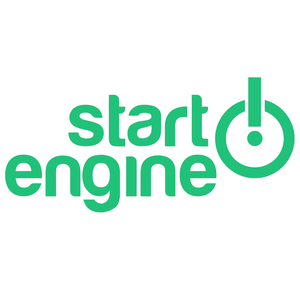Equity investments that fund and grow innovative new companies in the startup marketplace move the national economy forward and propagate job creation. These types of investments are innately risky capital investment ventures, and not all investors see profitable returns. Additionally, many taxpayers have been unable to participate in these high-risk-high-reward investment opportunities until recent years.
For this very reason, QSBS tax incentives were created and enacted to fuel the startup landscape with capital and motivate investors to partake in risky yet potentially profitable equity investments. Over the last decade, opportunities and legislation have evolved, which has allowed more taxpayers to participate in equity investment opportunities. These recent changes have also allowed more non-accredited investors to benefit from eligible capital gains tax incentives through a new investment approach, crowdfunding.
The development and growth of equity investments through crowdfunding over recent years has created a more extensive pool of eligible investors. It has also allowed these investors to take advantage of QSBS tax incentives on their qualified stock. This new investing movement has also guided the growth of investment platforms strategically designed to facilitate, enable, and streamline crowdfunding investment opportunities to the general public.
A KingsCrowd report released at the beginning of the year documented that Regulation Crowdfunding had surpassed $500 million in 2021 alone, which is more than double the equity investments that were made on crowdfunding platforms in 2020.
What triggered the exponential growth in crowdfunding?
The JOBS Act legislation, which was signed into law in 2012, worked to stimulate investment funding to small businesses. It also played an essential part in regenerating the American economy following the 2008 recession by permitting founders and entrepreneurs to publicly promote their startup venture capital fundraising. The JOBS Act also made a way for more American taxpayers to get involved in equity investment opportunities, which widely expanded the pool of eligible investors.
Former President Barack Obama was optimistic that the bipartisan JOBS Act legislation would bring many potential economic benefits to fruition nationally, starting with an influx of investment capital to the startup ecosystem. During the signing of the JOBS Act, the former president spoke hopefully:
“And for start-ups and small businesses, this bill is a potential game-changer. Right now, you can only turn to a limited group of investors — including banks and wealthy individuals — to get funding. Laws that are nearly eight decades old make it impossible for others to invest. But a lot has changed in 80 years, and it’s time our laws did as well. Because of this bill, start-ups and small businesses will now have access to a big, new pool of potential investors — namely, the American people. For the first time, ordinary Americans will be able to go online and invest in entrepreneurs that they believe in.”
Four years after the JOBS Act was passed, Regulation Crowdfunding (Regulation CF) was added. It gave private early-stage companies access to raise venture capital from the entire body of American taxpayers and lessened restrictions on how private startups could raise capital.
Regulation Crowdfunding (Regulation CF) was added four years after the enactment of the JOBS Act. This amendment lessened the restrictions on how startups companies could promote fundings and raise capital. The addition of Regulation CF gave private early-stage startup companies the ability to raise funding rounds that were accessible to general taxpayers on a national level.
Prior to Regulation CF, equity investors could only participate in the private equity marketplace if they met certain requirements that made them accredited investors. Qualifying as an accredited investor, in the past, revolved only around an individual’s overall net worth, which left many American taxpayers unable to contribute to the startup ecosystem or benefit from QSBS tax incentives.
However, the Security and Exchange Commission (SEC) modified the components to modernize the qualification of an accredited investor in December of 2020. These recent qualification modifications grew the eligible pool of potential investors even further and generated the exponential rise of crowdfunding investment opportunities.
So who are the major crowdfunding platforms, and how do they differentiate themselves?

Today we look at the crowdfunding platform, StartEngine. This platform, along with Wefunder, is one of the largest and one of the first crowdfunding portals to be approved after Regulation CF was amended to the JOBS ACT, allowing for equity crowdfunding investments to be open to the taxpaying public. StartEngine’s founders also played a role in lobbying for crowdfunding regulations and legislation to be approved and passed by the SEC. To push Title III of the JOBS Act through the sluggish drafting stage, where it remained for several years after the JOBS Act was initially passed, founder and CEO of StartEngine, Ron Miller, launched a grassroots campaign. The movement provided social media visibility to the pending crowdfunding legislation and put pressure on the SEC to move ahead with Regulation CF.
How did StartEngine start?
StartEngine was founded in 2014 by Howard Marks, Paul Kessler, and Ronald Miller to provide everyday taxpayers the opportunity to become angel investors by giving the public access to investment opportunities in the startup marketplace. StartEngine launched its first crowdfunding campaign after the SEC enacted Title II of the JOBS Act in June 2015. This crowdfunding platform specializes in helping investors and entrepreneurs invest and raise funds by the requirements delineated in Regulation CF (Title III of the JOBS Act) and Reg A+ (Title IV).
StartEngine has raised over $30 million through equity crowdfunding investments for their own platform, and they permit their hefty base of over 20,000 investment shareholders to trade stock. The platform has successfully funded over 500 offerings, and the platform has over 600,000 investors. In addition, StartEngine has a high retention rate of startup companies raising initial rounds and returning rounds through their platform. Approximately 50% of the startup companies funded through the platform return to do additional raises.
StartEngine was ranked as California’s 10th fastest-growing private company in 2020. Along with that, renowned investor, business guru, and Shark Tank personality, Kevin O’Leary, joined StartEngine as a Strategic Advisor in March of 2020. The growth of this crowdfunding platform shows no signs of slowing as the popularity of equity investments through crowdfunding spreads throughout the general taxpaying population. In a recent report released by KingsCrowd, StartEngine had raised $136 million in 2021 alone.
What types of startup companies are funded on StartEngine?
Below is a cross-section of startup businesses that are currently or have previously raised funds through the StartEngine crowdfunding platform:

LiquidPiston is a company that designs, develops, and tests multifuel capable combustion engines that are compact and highly efficient. These engines are also scalable from 1 Horsepower to well over 1000 Horsepower. LiquidPiston raised over $17 million in funds just through the StartEngine platform alone in 2021, and the company is currently valued at $69.1 million.

Graze is a company that builds autonomous, electric lawnmowers that are both effective and cost-efficient for commercial usage. Graze raised funds through StartEngine in 2021 and came in at a $23 million valuation. The single-round on the platform raised well over $5 million.

Sugarfina is a luxury sweet shop and specialized candy bar with a large variety of options for all ages and occasions. The company is currently raising a round on the StartEngine platform and has altogether raised over $1 million to date.
Are investments made through crowdfunding platforms eligible for tax incentives such as QSBS?
Not only does crowdfunding render the capability for non-accredited investors to invest in early-stage companies, but it also allows crowdfunding equity investors to utilize QSBS tax benefits for tax-free gains if eligibility criteria are met.
Qualified Small Business Stock (QSBS) is a provision located in Section 1202 of the Internal Revenue Code (IRC). This tax code allows up to a 100% tax exclusion on capital gains as long as specific eligibility criteria are met. These prerequisite requirements tend to align with the early stages that most startup companies are in when they look to raise funds through crowdfunding platforms.
The vast majority of crowdfunded startup companies have yet to reach the $50 million gross asset threshold, which is a primary QSBS eligibility qualification. Additional criteria includes entity type and the type of industry in which the entity conducts business.
Learn more about QSBS eligibility requirements here.
The eligibility requirements for Qualified Small Business Stock are profitable and lucrative but also nuanced and challenging to navigate. Additionally, they must be carefully monitored over a minimum 5-year holding period, to ensure that shareholders can claim the exemption with confidence.
How do I know if a StartEngine investment is QSBS eligible?
Startup companies raising rounds on crowdfunding platforms, like StartEngine, may qualify for QSBS eligibility. However, to date, StartEngine does not denote if certain companies or stock are potentially QSBS eligible.
The complex details of the QSBS tax code makes it necessary for equity investors to research their current and potential investments in startup companies to ensure the corporation complies and qualifies for QSBS eligibility.
If questions arise about the QSBS eligibility of your equity investment stock invested on the StartEngine platform, you do have some different options:
- Investors have the opportunity to ensure that their investments are being funded into a QSBS eligible company. Companies often make QSBS representations in their share purchase agreements. It is important to note that these reps are sometimes stated with limited evidence to back the claim.
- Investors can directly contact the crowdfunded company’s management team to ask for specifics and details of the company’s QSBS eligibility requirements and qualifications.
- Investors can also reach out to our expert team here at Capgains.com. If you would like us to assist you in determining if your equity investments on crowdfunding platforms are QSBS eligible, fill out this form so we can more effectively serve your investment needs and answer your questions.
Crowdfunding, QSBS, and 1045 Rollovers
Section 1045, is a sister provision of the QSBS tax code, and it provides the ability to roll gains into other QSBS stock in order for it to continue working towards the 5-year holding period. Essentially, this means an investor does not have to lose their QSBS capital gains tax exemption when a sale happens that is out of their control. However, the equity investor only has a 60-day time period to rollover the gains into a new QSBS eligible company.
For that reason, crowdfunding investments may uniquely benefit investors who are looking to quickly and efficiently rollover their gains in order to meet the 5-year holding period and meet the qualifications for QSBS eligibility. Equity crowdfunding platforms give investors the profitable opportunity to identify corporations that qualify for QSBS, and companies are currently raising funds for a potential rollover prospect.
Reach out to our team if you have QSBS capital gains to rollover now. We can help ensure that you know the options available to you in order for your stock to remain QSBS eligible.
Capgains.com specializes in helping equity investors and corporations navigate QSBS tax exemption qualifications through ensuring shares are QSBS eligible and through monitoring eligible stock over time. Our team of experts are available and ready to provide support throughout the entire lifetime of your QSBS eligible stock.
This article does not constitute legal or tax advice. Please consult with your legal or tax advisor with respect to your particular circumstance.

